So, what if we could...
- Reduce the form management burden the QHotels team had to deal with, without losing the ability to segment and analyse business critical data?
- What if we could centralise more content for more efficient editing, without losing the ability to create bespoke offers, pricing, and details where we needed them?
- What if we could save The QHotels Collection time, effort and ultimately money, while still improving their online user experience, polishing their brand presence, and increasing online bookings and other key conversions?
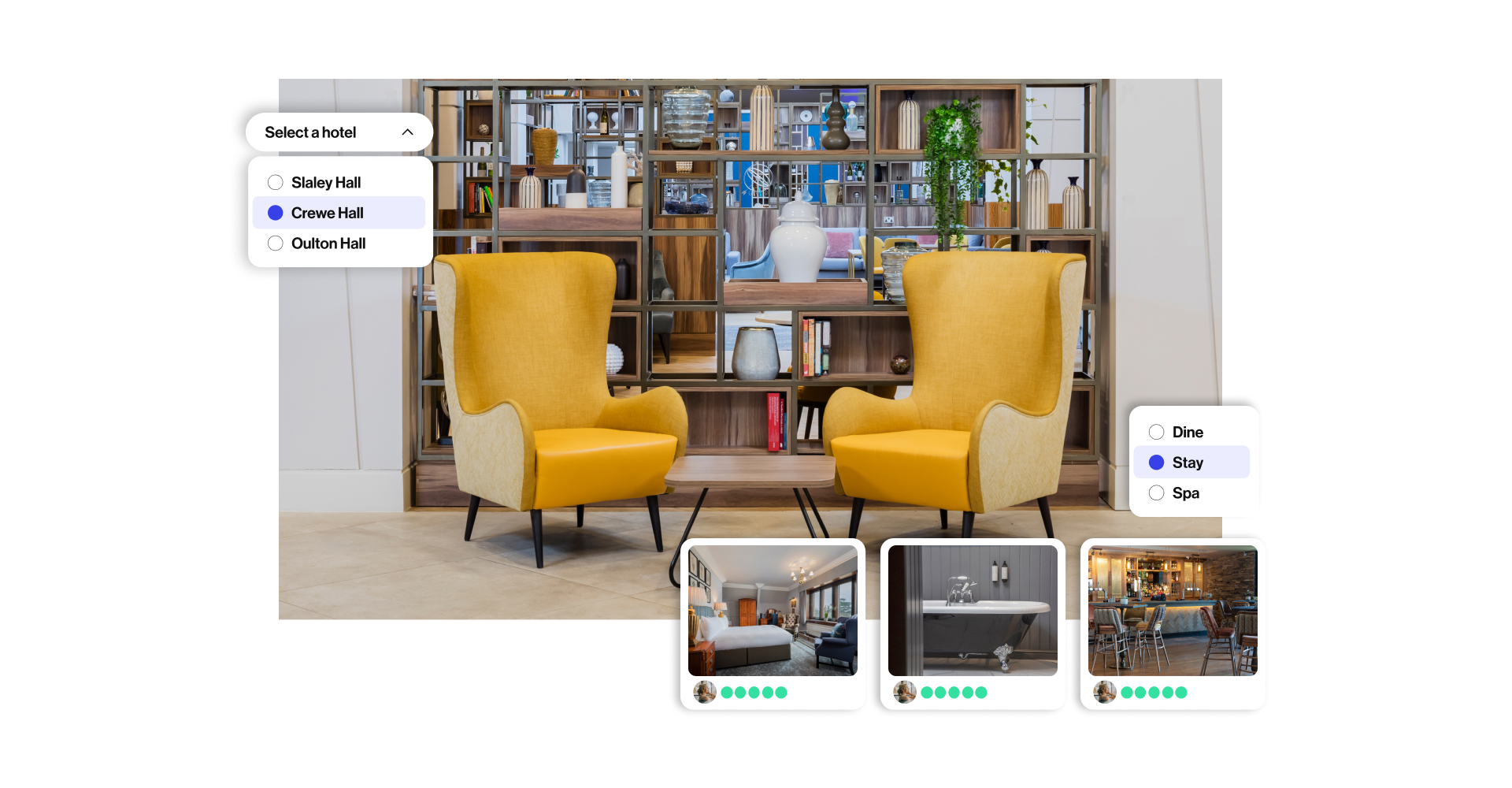
Performance
As part of this project, we re-platformed The QHotels Collection onto .Net Core, which, coupled with an updated version of the Umbraco CMS has delivered out-of-the-box performance improvements compared to their old version of Umbraco based on .NET framework. In other words, we built in efficiency from the ground up.
The old group website failed Core Web Vitals and scored just 7/100 for performance on mobile devices, now the new group website passes Core Web Vitals with flying colours.
We reduced the number of forms The QHotels Collection needed to manage from 346, to just 8, and only 5 of those are in active use. Not only that, but we did it while still increasing their volume of book now clicks by 358%!
Since go live, one of Q’s flagship hotel sites has seen a 13% increase in conversion rate and a 10% increase in online enquiries, in other words, our five forms are already outperforming the 346 forms they used to have.
Bounce Rate
Average Session Duration
Conversions
Conversion rate
Engaged sessions
Engagement rate
Enquires (All)
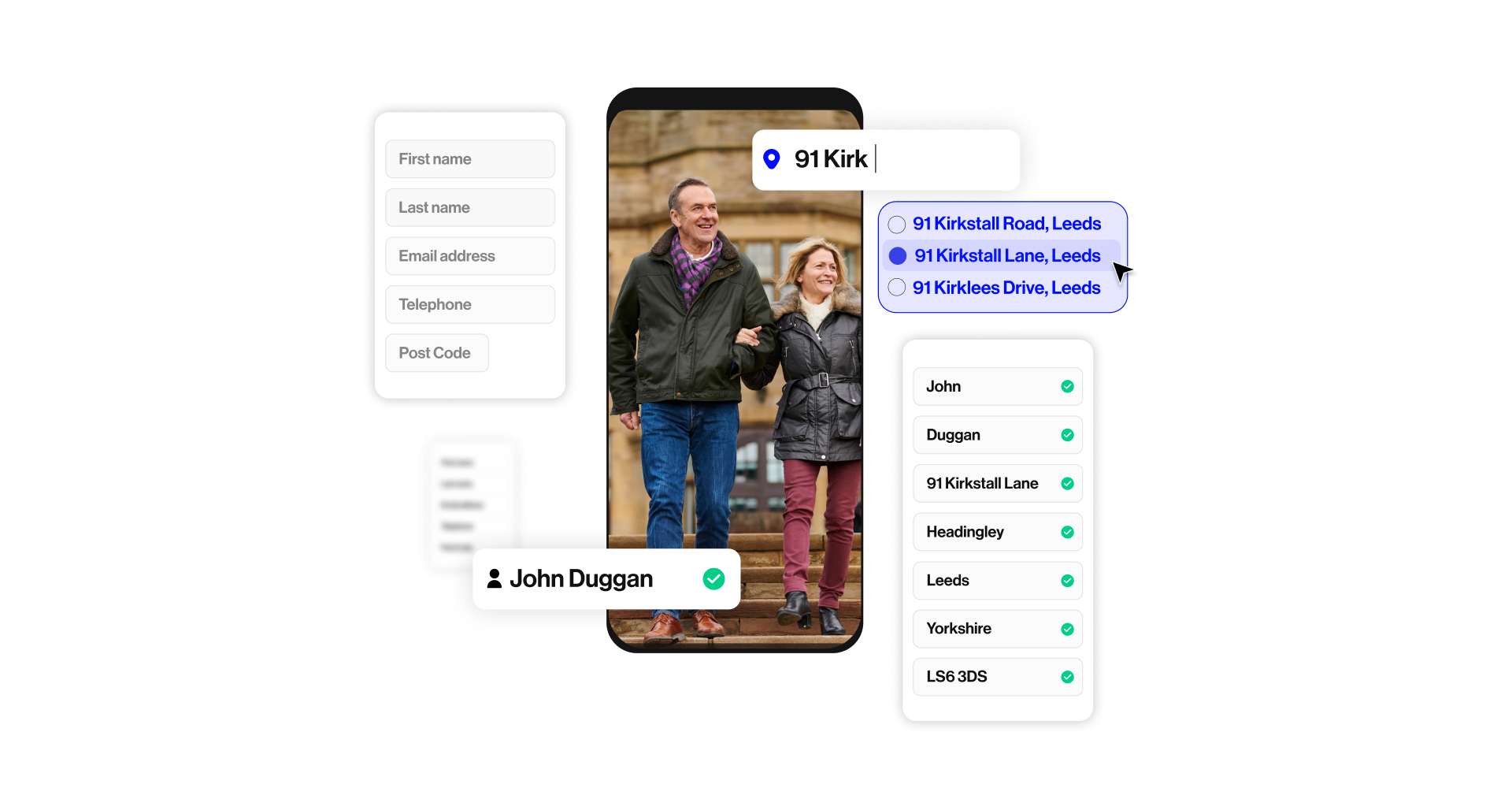
So how do you go from over 350 different forms to just 5, without losing key data, without significantly increasing form fields and without adding friction to the key conversion journey? In a nutshell: you use Umbraco Forms.
Putting forms at the centre
Knowing that a key objective for the Q team was to streamline their content management efforts, especially in relation to forms, we architected an answer that centralised forms from the very beginning. Instead of having one form for each product offering such as golf, weddings, and rooms, across every individual hotel website, instead, we created one form for each product offering, that would work across all the websites in the collection.
We did this by collecting the page URL at the point when the form is submitted, so conversions can still be tracked back and allocated to the right hotel. We used Magic Strings (a feature of Umbraco Forms) to create dynamic content that personalised the form content, to the right hotel, giving the user a tailored, relevant, and consistent online experience.
Our form functionality and efficiencies don’t end on form submission though. Key integrations work hard to improve everything from data collection and management to email nurturing and pricing updates. The aim was to control, improve and secure what happens before, during and after a form is submitted.

Before a form is submitted
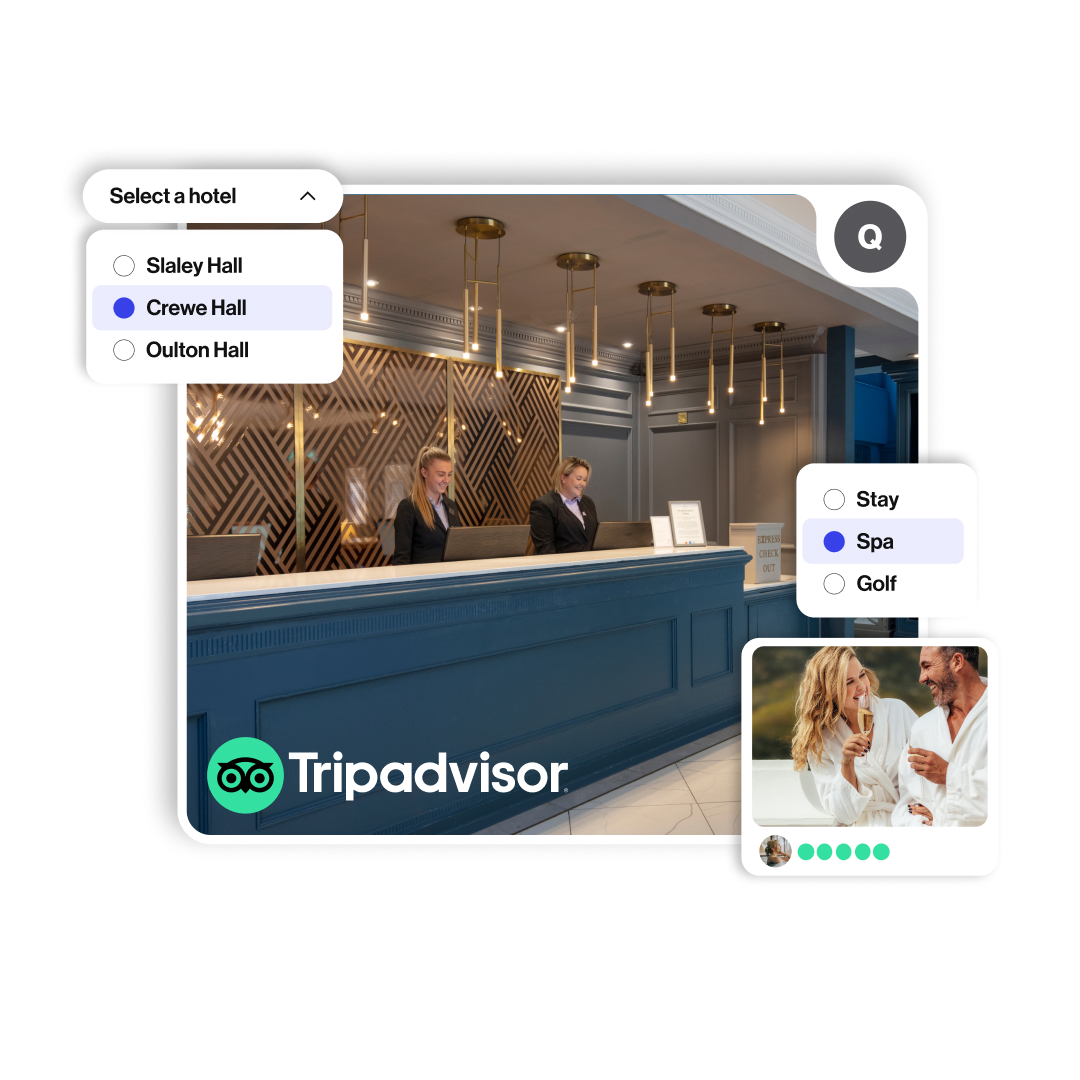
To secure a form submission in the first place, the websites in the QHotels Collection must work hard to build trust with the customer and encourage them to convert online. To help support that relationship, we use two Hangfire scheduled tasks (part of the Cultiv Hangfire Umbraco package created by Sebastiaan Janssen), one which uses the TravelClick (Amadeus) service to update room prices every 24 hours, so the customer can rest assured they’re always getting the best price. And another is to update each hotel with its latest review star rating and written reviews from TripAdvisor, so customers can double check they're making an informed decision.
When they are ready to book, we then have one form, that redirects customers to the relevant third-party website, by tailoring and generating a URL per destination, to deliver a consistent and streamlined user experience that maintains the trust that’s been built so far. Not only that, but this way of working also ensures that QHotels can easily integrate with any other booking systems they may need to use in the future, as their hotel collection expands.
During the form submission
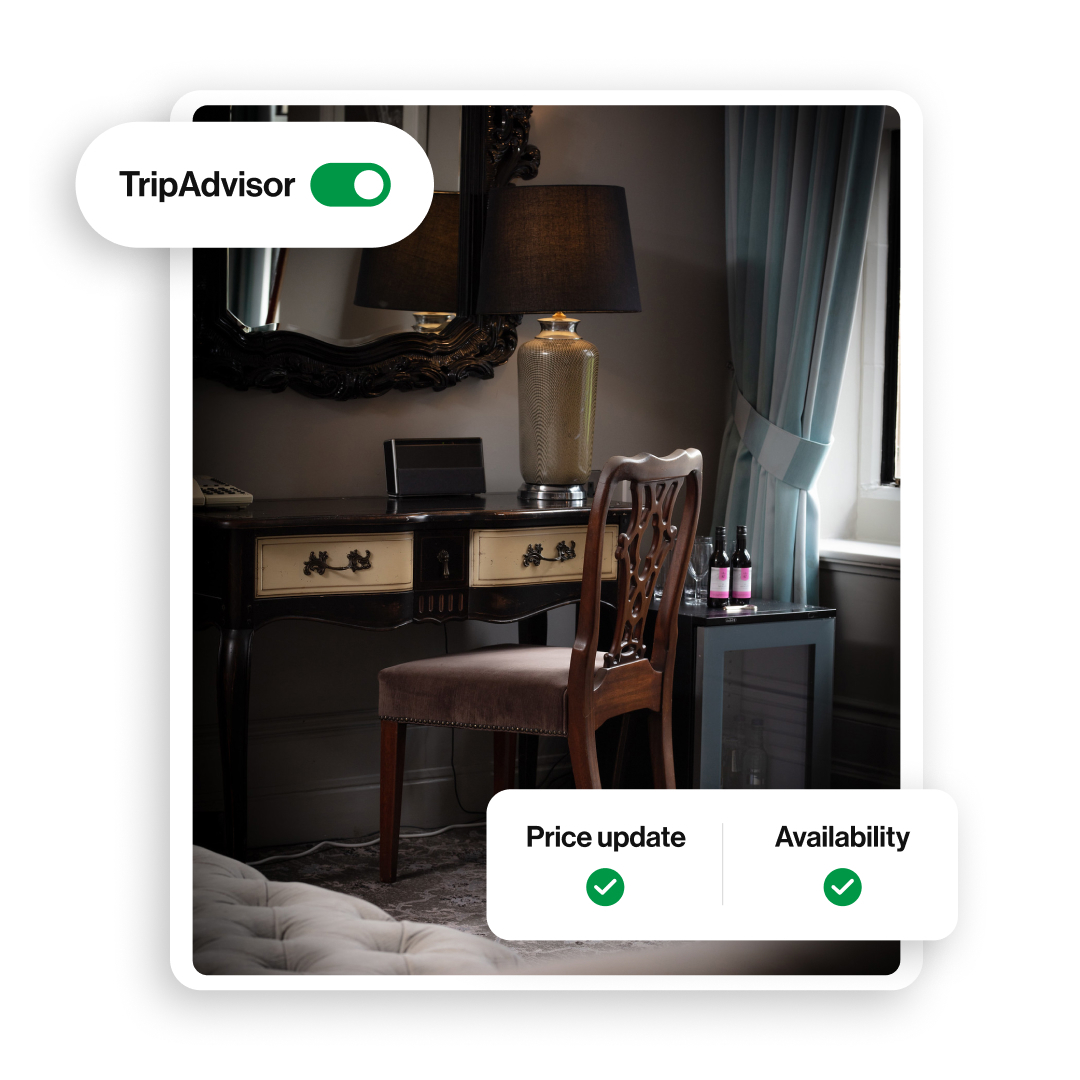
During the form submission, error logging is in place, sending alerts to key stakeholders if a form submission doesn’t pass successfully into Salesforce or Dotdigital, so we avoid data loss and keep databases accurate and up to date. As anyone who’s submitted a form online knows though, especially one that passes the data into a third-party platform, there’s nothing more frustrating than waiting to hit the thank you page and know your form submission was successful.
When they are ready to book, we then have one form, that redirects customers to the relevant third-party website, by tailoring and generating a URL per destination, to deliver a consistent and streamlined user experience that maintains the trust that’s been built so far. Not only that, but this way of working also ensures that QHotels can easily integrate with any other booking systems they may need to use in the future, as their hotel collection expands.
After the form submission
After the form submission, a Salesforce integration comes into play. By extending the form field types in Umbraco, we’ve empowered The QHotels team to choose which form fields pass from Umbraco, into Salesforce. Keeping Salesforce data detailed, but not overwhelming. On top of that, where consent is given, leads can also be passed into DotDigital which drives the For-Email service the team at QHotels use for their email marketing, powering smart segmentation and amazing automations.
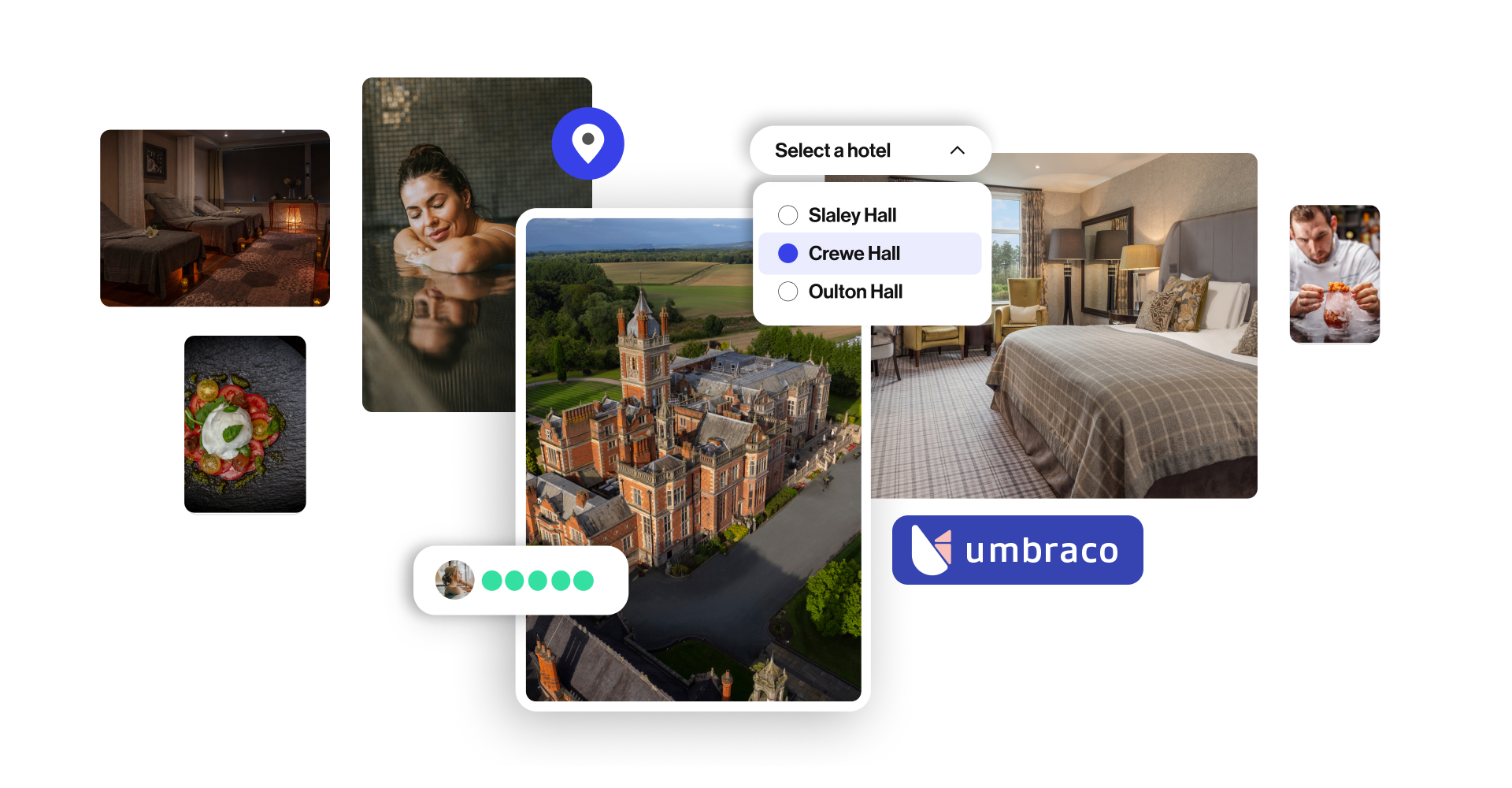
Moving on from forms to “konstrukting” central repositories…
There’s more to this formula for efficiency than just forms alone. We also used the Umbraco UI Builder, formerly Konstrukt, to house repositories for content such as testimonials, hotel room features, map locations and offers. This streamlines the content creation by allowing all the websites in the collection of share centralised data, so it can be added, updated, and edited once, in one place, and distributed throughout the digital footprint.
Reasoning
We chose Umbraco, Umbraco Forms, Hangfire and the Umbraco UI Builder for this project because it’s feature-rich, the license costs are affordable, it’s extensible to the point where it’s not restrictive and we could use it to create a strong foundation for the bespoke functionality we wanted to create for the team at Q, to achieve their key objective of a smarter, more flexible and easier to use content management platform.
Moreover, this infrastructure is built both for now and the future. It has the power to use headless architecture to add additional services, such as apps, POS in the hotels, staff intranet and any other digital platforms QHotels can think of all of which can be driven from the same Umbraco CMS. Watch this space…
We are thrilled to share our experience with the exceptional work delivered by our partners, Pixelbuilders. The recent launch of our new suite of websites has truly revolutionised our digital presence, allowing us to connect, engage and inspire our customers in new ways. Powered by the user-friendly Umbraco CMS, managing our portfolio of 20 websites has become a seamless and intuitive process. Pixelbuilders' expertise has ensured that our online platforms have a strong foundation. They have aesthetic quality, are robust and reliable and reflect the high standards of our collection of hotels and resorts located across Great Britain. The design and structure of our new websites perfectly encapsulate our commitment to delivering unforgettable experiences and unparalleled service in the hospitality industry. Thanks to our work with Pixelbuilders, we now stand as pioneers within the hospitality industry, setting new benchmarks for excellence and innovation. We are immensely proud of the outcome—a collection of beautiful websites that truly represent our brand ethos. As we look forward to the future, we are excited to embark on the next phases of our digital journey with Pixelbuilders and Umbraco by our side.
Sally Thornton
Head of Marketing









